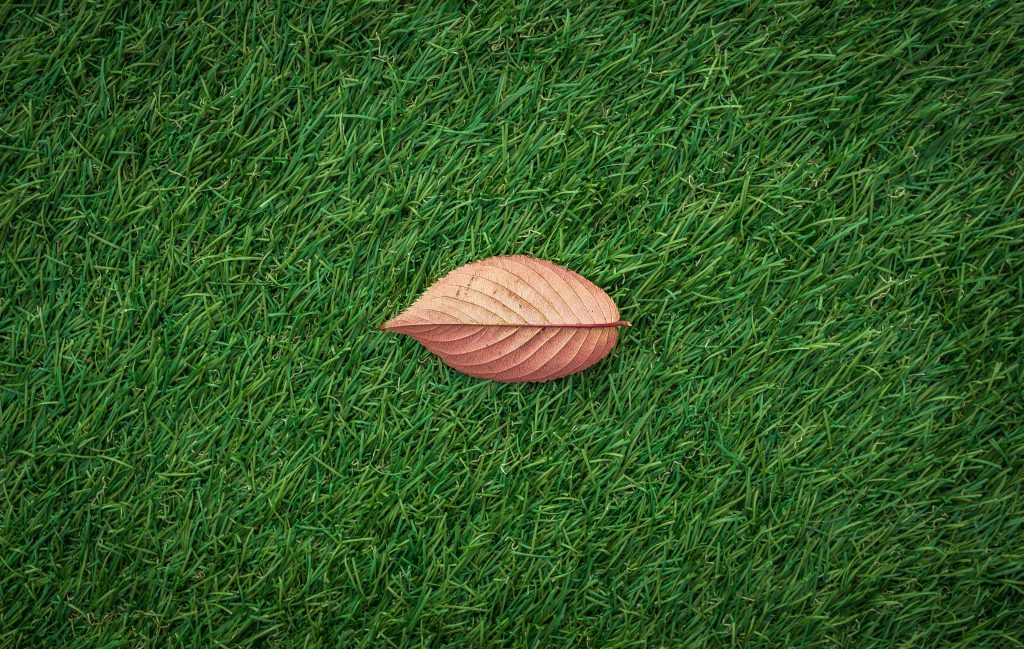Everyone dreams of having lovely green grass in their garden. You want to open the curtains every morning and look outside to see a green paradise staring back at you. For the most part, you’re likely to have a natural lawn in your backyard. This is sometimes called a live lawn, and the idea is that it is proper grass that has either grown naturally or been installed above the soil.
However, there is another option as you could install a synthetic or artificial lawn instead. The question is, why would anyone want to do this? Surely a natural lawn is the best way forward? Well, before you jump to conclusions, let’s look at the pros and cons of having a natural lawn in your garden.
Provides the best look and feel
Most people opt for natural grass because it looks the best and feels the best. When properly maintained, a natural lawn can’t really be beaten. It just has that natural green look to it, combined with the lovely soft feel of the grass as it brushes your feet. There’s another thing you get with it that you can’t get from any alternatives: the freshly cut smell of grass! When all of these things combine, it just delivers a better look and feel than other options – but only when it is well maintained, and that’s a key point!
It lasts for as long as you make it last
Natural grass can last for a lifetime if you take good care of it. Most of the artificial options will only last for up to a couple of decades before they need to be replaced. While that’s still a long time, it means you have to pay for a new lawn installation many times in your life. By contrast, if you just keep up with your regular garden maintenance, you can enjoy a green natural lawn forever.
Cheap to install
It is very cheap to grow real grass in your garden, so this is an affordable option for most homeowners. However, you could argue that this cheapness is offset by the cost of ongoing maintenance. You will need to pay for lots of things to keep your lawn in excellent condition, so keep that in mind.
Lots of maintenance required
Perhaps the biggest downside of having a natural lawn is that you will need to do a lot of maintenance. It requires regular watering, cutting, fertilizing, and so on. By contrast, a lawn installed by an artificial turf company needs a fraction of the maintenance. You don’t require all the different products that natural grass demands, so you can maintain a good looking lawn without the maintenance.
Doesn’t cope well under tough conditions
You’re read that natural lawns can last for a lifetime under perfect circumstances. Unfortunately, you rarely get these! Bad weather and constant foot traffic can easily damage and wreck your lawn. It can develop muddy patches that cost a lot to fix, not to mention you throw chemicals on the lawn to fix them. With an artificial option, you have something that’s more durable and can withstand bad weather and ongoing foot traffic.
Not great for the environment
This might confuse you, and it confused me when I first heard about it. You’d think that a natural lawn would be good for the environment as it is live grass. However, the resources required to maintain your lawn are simply too much. Lots of water gets used to water a lawn all year round, and then you have the harmful chemicals needed to keep it healthy and green. Believe it or not, but artificial turf could be far better for the environment in the long run.
Should you get a natural lawn for your garden?
Or, if you already have one, should you keep it? The answer depends on your situation at home. A natural lawn is definitely better if you can commit to the maintenance, don’t see bad weather that often, and won’t have lots of kids running around on it every day. Just make sure you use environmentally-friendly lawn maintenance products to minimize the environmental impact your lawn has.
On the other hand, if you have kids or can’t commit to following a strict lawn maintenance routine, artificial turf is a lot better for you. It really all depends on how your garden is used, who lives with you, and what you do for a living. In reality, both options are great, it’s just about finding the best one for you.


Artificial turf is an environmental nightmare – consider what happens at the end of it’s useful life – you have a giant roll of non recyclable plastic to dispose of, 3 layers of nasty fill to get rid of, and they really don’t look that good unless done and by a pro. If you have a large yard, try intermixing plants with a lawn area, and use recycled greywater (laundry) to water it.
Thank you for that input. It’s an important point to consider.